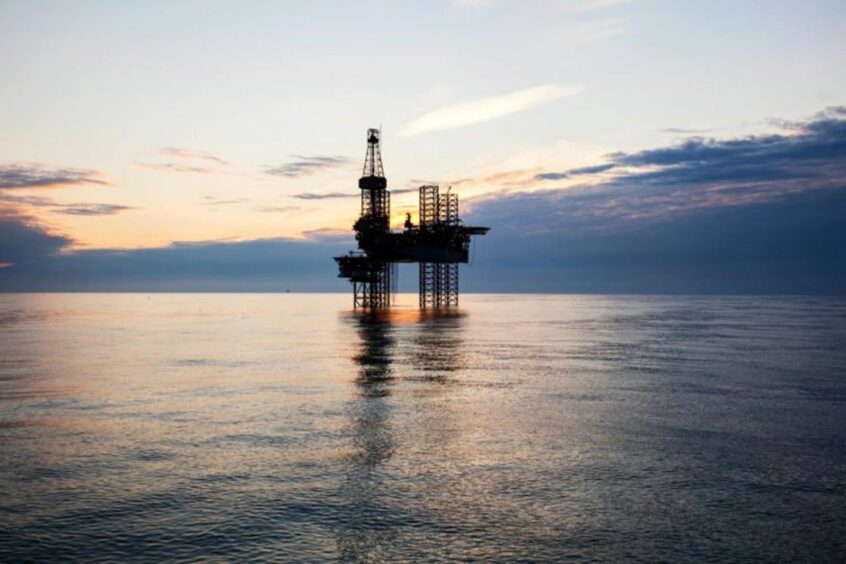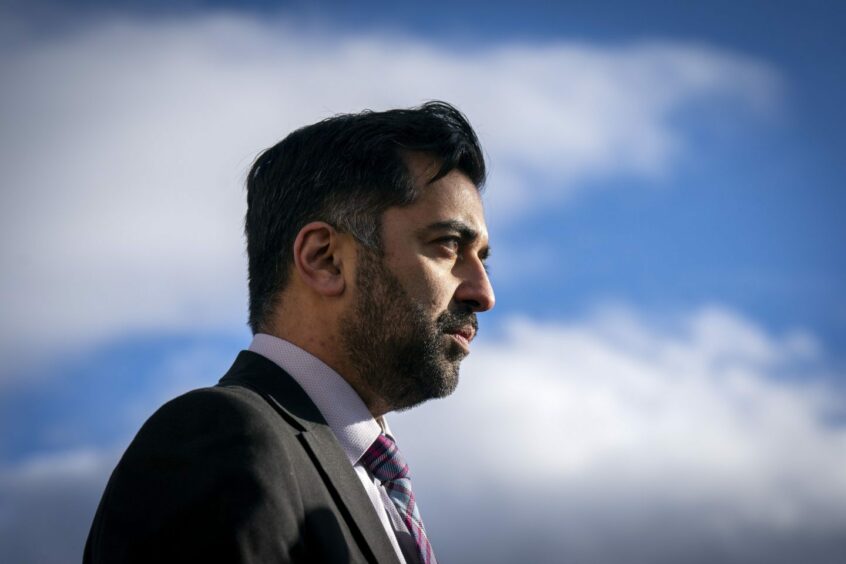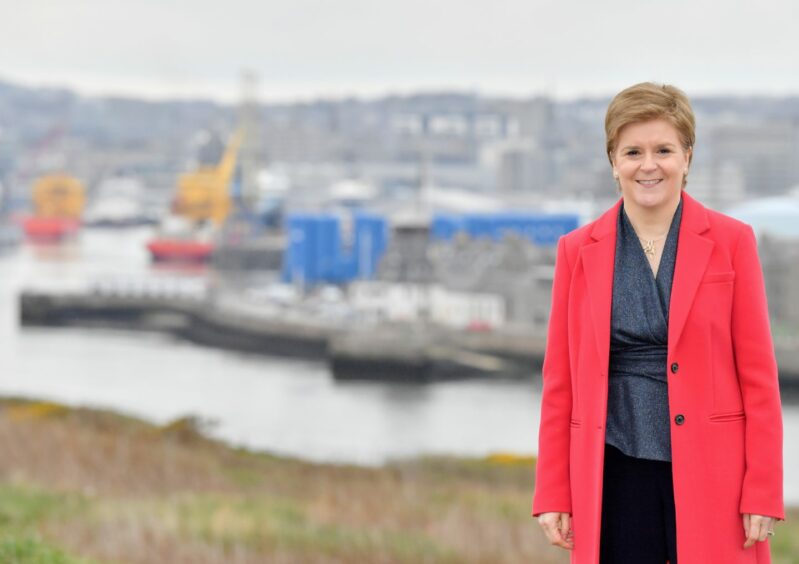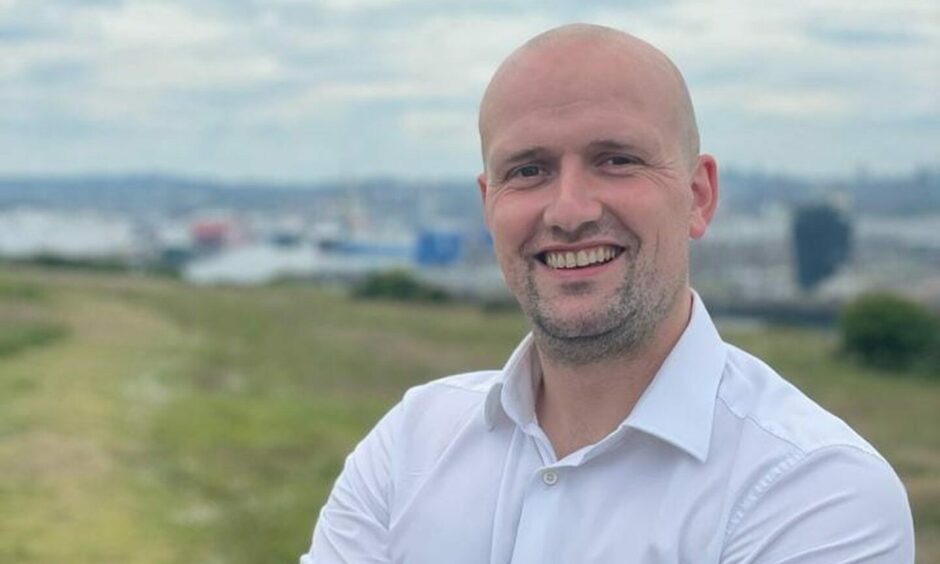
“It’s Scotland’s oil,” was once the rallying cry of the SNP and formed a central part of the nationalist movement’s economic case for independence.
Yet under Nicola Sturgeon’s leadership, the party made a dramatic shift away from support for continued drilling in the North Sea.
Before the SNP’s conference this weekend in Europe’s oil and gas capital, activists and politicians are grappling with the party’s energy policies.
Looking ahead to his own appearance on stage at the P&J Live conference venue, SNP leader Humza Yousaf says he wants the region to lead the way.
“Let me give an absolute assurance to oil and gas industry, it’s an industry we value,” he told the Press and Journal.
“It’s an industry that has helped power the north-east but also power the economy of the UK.
“We will not do to any worker in the north-east what Thatcher did to the mining communities right across Scotland.”
Political leaders used the phrase “just transition” to describe a fair deal for employees in fossil fuels looking for jobs in a greener future. Critics claim it’s a slogan in search of a policy.
Mr Yousaf says Aberdeen and the north-east can be the “blueprint” for that shift globally.
He also announced plans to take a delegation to climate conference COP28 in Dubai, two years after the gathering was held in Glasgow to fanfare by former first minister Nicola Sturgeon.
“I think Scotland, the north-east in particular, can be the global blueprint of how you do the just transition,” he said.
Asked what that will mean in practice, Mr Yousaf points to the region’s lucrative energy supply chain.
“We need to make sure we have supply chain companies coming to Scotland,” he says.
The US and EU are competing in that field with subsidies and tax benefits already.
But Mr Yousaf hopes more people will be attracted to Scotland – experts and trainees – hoping to make the country a world-leader.
“We have good supply chain infrastructure,” he says. “We need it in far greater quantities.”
SNP upheaval
Mr Yousaf was speaking at Bute House, his official residence in Edinburgh, while dealing with major distractions in his own party.
He is also coping with the reality of his in-laws being trapped in Gaza while Israel reacts to a Hamas terror attack.
Hours before a pre-arranged P&J interview, one of his MPs – Lisa Cameron – announced she was quitting to join the Conservatives. It was a big embarrassment, and one he attempted to laugh off as the least surprising thing that’s happened since he became leader in spring.
He also felt obliged to apologise for comments made by an SNP councillor in Aberdeen towards a Sri-Lankan born Labour representative.
Meanwhile, SNP rebel Fergus Ewing, who is shunning the Aberdeen event, has reiterated his demands for the government to U-turn on its energy policy position against new oil and gas.
Independence supporters who would abandon oil leave a gaping chasm in the economics of independence. Anyone arguing otherwise can whistle Dixie.
– Fergus Ewing
Mr Ewing told us: “The overall tone of the debate needs to be far less emotional and more rational.
“Anyone who, like me, sets out these rational arguments quickly gets called names by people who cannot respond to the arguments.
“Ironically, there’s far too much heat in the global warming debate.”
The Inverness and Nairn MSP, who is appealing a decision to suspend his membership for one week, represents an old guard of the SNP unhappy with the party’s shift away from oil and gas.
‘Gaping chasm’
He insisted fossil fuels will “remain a major part of our economy for decades”, and warned money generated from the sector “simply cannot be replaced by renewables”.
Mr Ewing added: “Independence supporters who would abandon oil leave a gaping chasm in the economics of independence. Anyone arguing otherwise can whistle Dixie.”
Other party insiders claim many within the SNP are sceptical about the change of pace, even if they have not said so publicly.
Former media chief Fergus Mutch, who stood for election twice in Aberdeenshire, said the current strategy is damaging the economic case for leaving the union.
He told us: “There’s huge numbers within the SNP who are not convinced the leadership has the strategy right on this. I think this extends to the MSP group.
“I think they’ve already harmed that economic prospectus for independence.”
‘Jobs don’t exist at scale’
While Mr Mutch supports a transition to renewables, he warned “the jobs frankly don’t exist at scale yet”.
And perhaps more worryingly for the SNP, he believes Labour’s strategy on oil and gas may be more in-tune with north-east voters.
He said: “They realise it’s absolutely necessary for sustaining an energy sector through a transition.”
Former first minister Ms Sturgeon made her position clear in 2021 when she opposed the controversial Cambo North Sea scheme.
Politics expert James Mitchell, professor of public policy at Edinburgh University, said there had been a change in direction under her leadership.
North-east ‘no longer’ SNP heartland
He told us: “The north-east used to be the heartlands of the SNP. It’s no longer that.
“I think Nicola Sturgeon was very much a central belt MSP. I don’t think she had much understanding beyond the central belt.”
Prime Minister Rishi Sunak’s decision to approve the Rosebank oil field for drilling has led to renewed scrutiny of the new SNP leadership’s views.
The party’s Westminster leader Stephen Flynn, MP for Aberdeen South, said all projects must be looked at with an “evidence-based approach”.
He told us: “Aberdeen needs a transition to net zero to ensure that we have a thriving local economy for the long term, but we cannot achieve that without protecting our workforce in the immediate term.”
An SNP source acknowledged there had been slight softening in tone on the move away from oil and gas since Mr Yousaf took power, even if policy remains similar.
Recommended for you

 © PA
© PA © DCT Media
© DCT Media © Supplied by AGCC
© Supplied by AGCC © Supplied by Stephen Flynn, the n
© Supplied by Stephen Flynn, the n